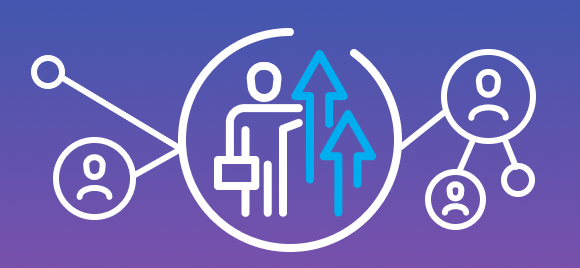Today, change is exponential. Its impact touches everything and everyone, and its momentum is propelling us forward at a dizzying pace. Like every industry, the contingent workforce space is also encountering new dynamics, shifts, and challenges as exponential change continues to redefine the meaning of work. But, dealing with this change in the right way can help businesses turn crises into opportunities.
In our recent webinar, Developing Your Talent Strategy with Prosperix Xponential, we delved into how exponential change is impacting companies’ workforce management strategies and how to meet that change with an exponential solution.
Let’s explore —
Most contingent workforce programs don’t become best in class – why?
Contingent workforce management is difficult to manage. Talent shortages, rogue spend, lack of program visibility and real-time insights, compliance risks, and supplier management troubles are common issues businesses face while establishing and managing their programs. This makes fulfilling basic program requirements challenging, let alone figuring out how to thrive. Why? Because most companies don’t realize these challenges are tied to exponential change.
Exponential change isn’t exclusively the byproduct of rapidly-evolving technology. It’s happening because of emerging shifts in demographics, the environment, the economy, and borderless commerce. And with the increasing frequency of these changes, attempting to prepare for each transformative circumstance is a daunting task.
This is why legacy MSP/VMS solutions fail
Legacy systems are singular solutions designed to solve a single problem. They don’t consider the complexities and risks involved in contingent workforce management, then reactively adjust to fix the immediate challenge.
Talent supplier management is a significant area where these systems fail.
In traditionally structured programs, businesses on board suppliers with the presumption that they would be best suited to fulfill their hiring needs. But, placing a blind bet on supplier partnerships isn’t always favorable for contingent workforce programs. And, when you have no performance measurement capabilities or only a posthumous evaluation of supplier performance, you put yourself at risk.
The staffing industry is highly volatile, and supplier capabilities can change instantly. Recruiters are headhunted by competing organizations all the time, and the one fulfilling your job requests today might not be available tomorrow. This invariably affects supplier performance, and because you lack real-time visibility into how your programs are performing, it can lead to:-
- higher costs
- poor hiring experiences
- non-standard contract terms
- compliance risks
- constant change management
- lack of program adoption
- failure to achieve program maturity
Ultimately, this static method of managing your supplier base disadvantages all the stakeholders involved. Business productivity decreases due to the lack of quality talent, candidates suffer from poor experiences, procurement teams are overwhelmed with the looming costs, and suppliers remain stagnant due to the lack of feedback on their performances.
An exponential contingent workforce solution is the solution
Unlike linear solutions that solve only a portion of the problem, exponential solutions are built to effectively manage the entire contingent workforce ecosystem. This means, in addition to solving anticipated risks and disruptions, these solutions incorporate the best interests of every stakeholder involved.
They deliver:
Agility – Exponential solutions allow you to remain agile in every workforce situation. Whether it’s scaling up your workforce due to your company acquiring a new business unit or a new diversity initiative that requires more suppliers, exponential solutions have the ability to fulfill every workforce need IMMEDIATELY.
Resilience – In situations where companies have to re-evaluate their contingency plans, exponential solutions help optimize contingent workforce programs. They provide complete visibility into your program health and help you identify the best ways for cost containment to remain resilient.
Network effects – Exponential solutions allow you to access a diverse network of suppliers, giving you unlimited talent pools with candidates from various geographies and with skill sets. The power of network effects gives you the exponential ability to scale your workforce, and this single solution takes care of your business’s total talent needs.
Automation – By uniting the entire workforce ecosystem and using the latest technologies, exponential workforce solutions help automate the day-to-day tasks involved in contingent workforce management. They streamline processes and make them lean, elastic, and agile, fostering transparent communication among stakeholders.
Real-time data visibility and insights – Exponential workforce solutions are intelligent and data-driven. They govern contingent workforce programs using real-time data and help you make strategic decisions depending on data forecasts. Real-time data also feeds intelligent algorithms that keep your program running optimally in all situations.
Prosperix Xponential – solving contingent workforce management end-to-end
Built with exponential capabilities, Prosperix Xponential is a bundled solution that helps businesses manage their entire hiring lifecycles. Our exponential offering consists of:
Prosperix VMS Network – The world’s only networked (and patent-pending) VMS with a built-in hiring marketplace capable of automating the functional aspects of contingent workforce management. Our stand-out functionality — automated supplier management helps manage suppliers effectively while building and managing your contingent workforce with the highest-quality candidates in the market.
Prosperix Hiring Marketplace – Our proprietary built-in hiring marketplace accommodates your incumbents while giving you access to a diverse range of suppliers capable of filling every job in the market. We give suppliers democratized access to jobs on our platform, and this dramatically improves the quality of hires and reduces costs.
MSP Services – Seasoned MSP expertise to guide every step of your workforce management, from candidate curation and selection to onboarding and compliance management. With Prosperix, you can simplify your contingent workforce program with one contract, invoice, and point-of-contact to handle all supplier relationships.
Payrolling – Our payroll and employer-of record (EOR) services take care of payroll, statutory requirements, workers compensation insurance, employee benefits, background checks, and more across all worker categories.
10x your capabilities with Prosperix Xponential.
Watch the webinar here, then let’s talk!

